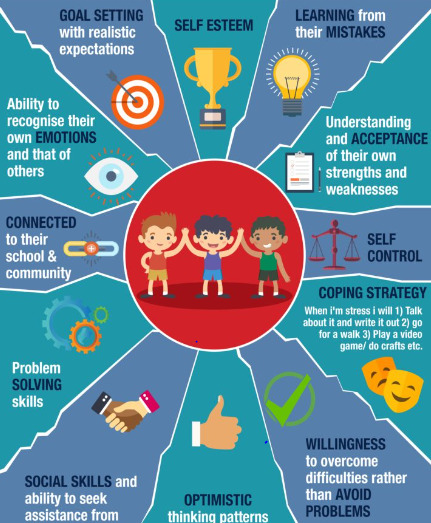How to build emotional resilience is an awesome topic!
The capacity to adapt and cope with stress, adversity, and challenges in a healthy and constructive manner is an essential component of emotional resilience.
It is a skill that, similar to a person’s physical strength, can be developed and strengthened over the course of time.
In this article, we will go over some of the techniques and suggestions that can assist you in developing emotional resilience.
What is Emotional Resilience?

Emotional resilience refers to the ability to adapt to and cope with challenging or stressful situations.
It involves the capacity to bounce back from adversity, manage difficult emotions, and maintain a sense of well-being despite life’s ups and downs.
It is not possible to develop emotional resilience by ignoring negative feelings; rather, it requires the ability to recognize them, to express them, and to find constructive ways to deal with them.
In addition to that, it requires having a solid support network and actively engaging in self-care activities, such as getting enough rest, exercising, and eating healthily.
Building up one’s emotional resilience can assist individuals in bettering their mental health, the quality of their relationships, and their quality of life in general.
Strategies to Build Emotional Resilience
Cultivate Self-Awareness: Self-awareness is the ability to recognize and understand your emotions and how they impact your thoughts and behaviors.

By cultivating self-awareness, you can develop a better understanding of your emotional triggers and learn to regulate your emotions.
Practice Self-Care: Self-care is the practice of taking care of your physical, emotional, and mental well-being.
It includes activities such as exercise, healthy eating, getting enough sleep, and engaging in hobbies and activities that bring you joy.
Build Strong Relationships: Having a strong support network can help you cope with stress and challenges in life.
Cultivate positive relationships with family, friends, and colleagues who support and encourage you.
Develop Coping Strategies: Coping strategies are techniques and skills that help you manage stress and cope with challenges.
Examples include deep breathing, meditation, journaling, and seeking professional help when needed.
Embrace Change: Change is a part of life, and emotionally resilient individuals are able to adapt and embrace change.
Rather than resisting change, view it as an opportunity for growth and learning.
Tips to Build Emotional Resilience
Practice Gratitude: Practicing gratitude can help you maintain a positive outlook and improve your overall well-being.

Take time each day to reflect on the things that you are grateful for in life.
Challenge Negative Thoughts: Negative thoughts can contribute to feelings of stress and anxiety.
Challenge negative thoughts by reframing them in a more positive and constructive way.
Develop a Growth Mindset: A growth mindset is the belief that your abilities and talents can be developed through hard work and dedication.
This mindset allows you to view challenges and setbacks as opportunities for growth and learning.
Practice Mindfulness: Mindfulness is the practice of being present and fully engaged in the current moment.
Mindfulness exercises, such as meditation and deep breathing, can help you manage stress and improve your mental clarity.
Engage in Physical Activity: Regular physical activity can help you manage stress and improve your overall well-being.
Find an activity that you enjoy and make it a part of your daily routine.
Conclusion
Building emotional resilience is a continuous process that requires commitment and dedication.
By implementing the strategies and tips discussed in this article, you can improve your emotional resilience and cope with stress and challenges in a healthy and constructive way.
Remember to be patient and kind to yourself, and celebrate your progress along the way.
FAQs
Q: Is emotional resilience the same as mental toughness?
A: Emotional resilience and mental toughness are related, but not the same.
Emotional resilience is the ability to cope with and bounce back from difficult and challenging situations, while mental toughness is the ability to persist and endure through difficult and challenging tasks.
Q: Can anyone build emotional resilience?
A: Yes, anyone can build emotional resilience with practice and dedication.
Q: How long does it take to build emotional resilience?
A: The time it takes to build emotional resilience varies from person to person.
It depends on factors such as the individual’s mindset, environment, and dedication to the process.



